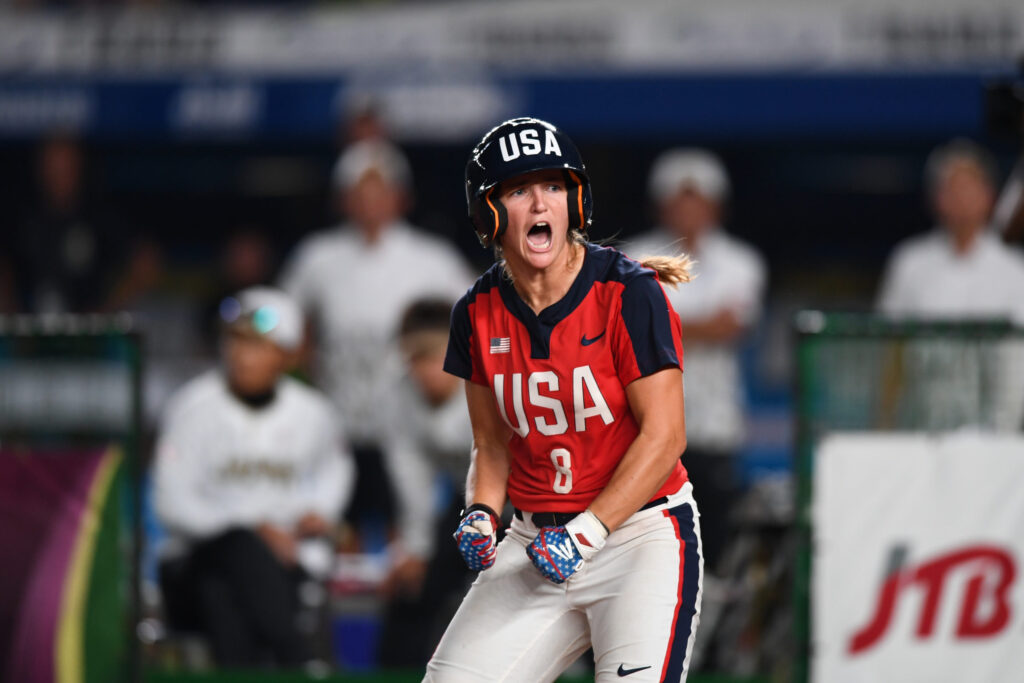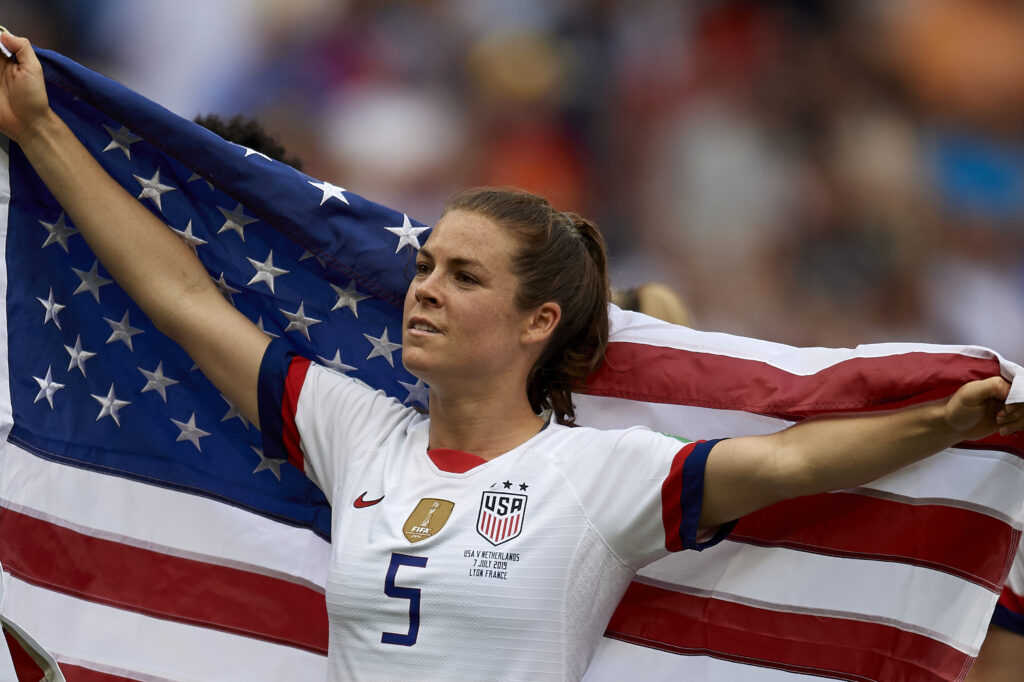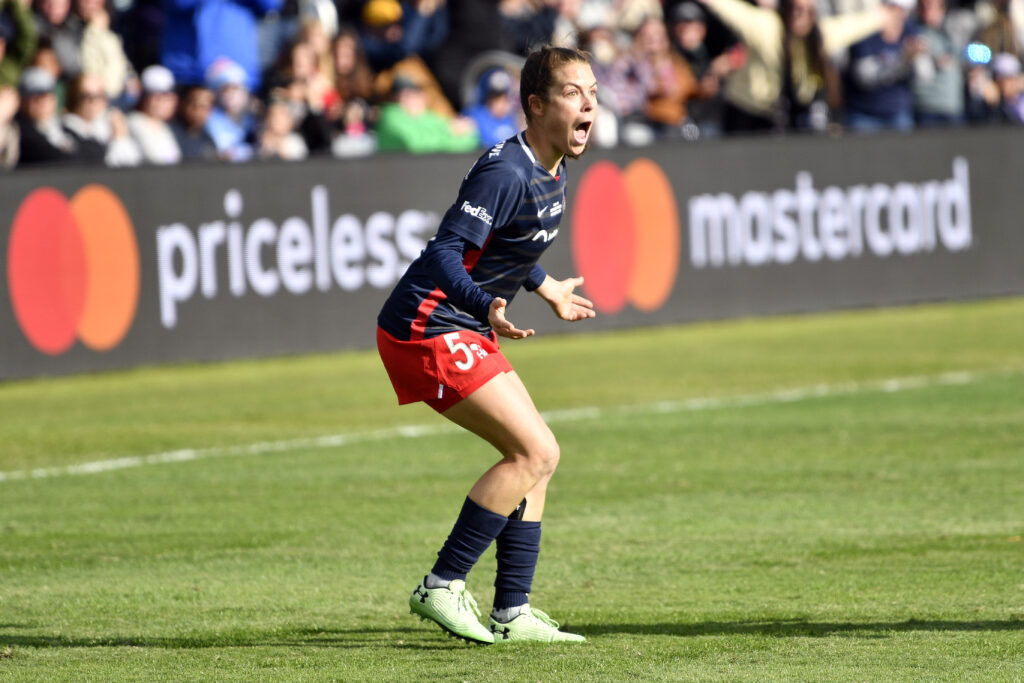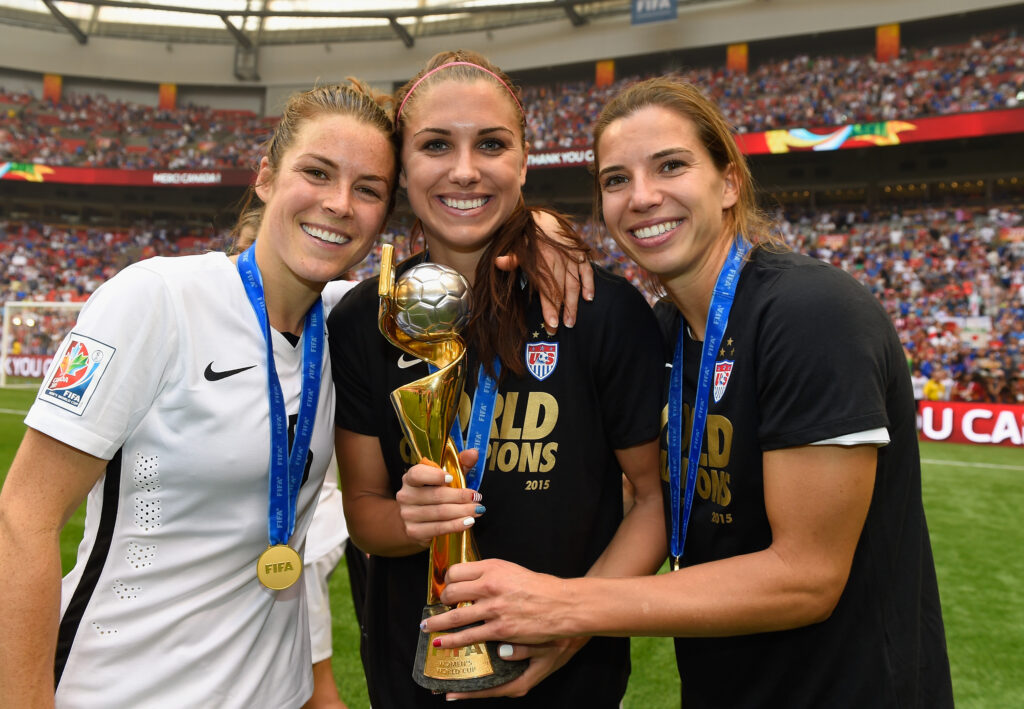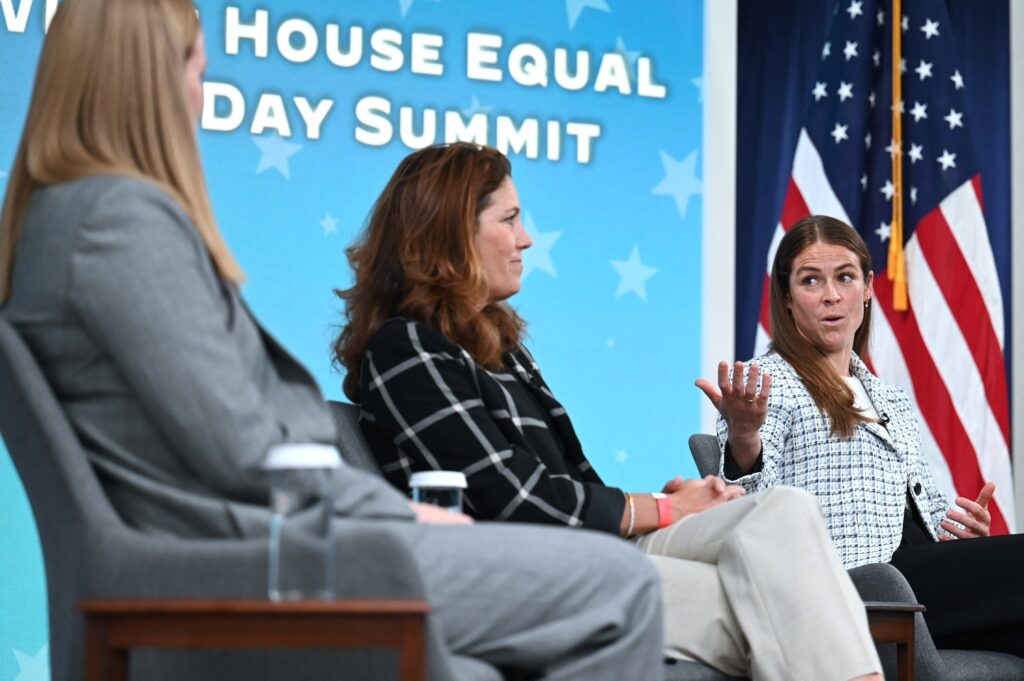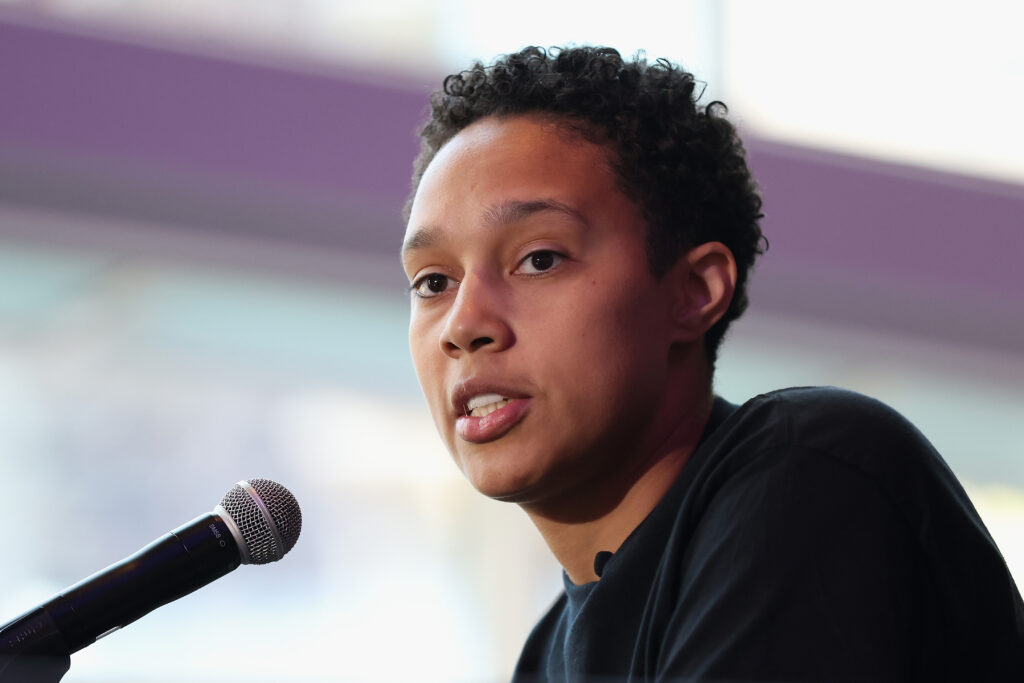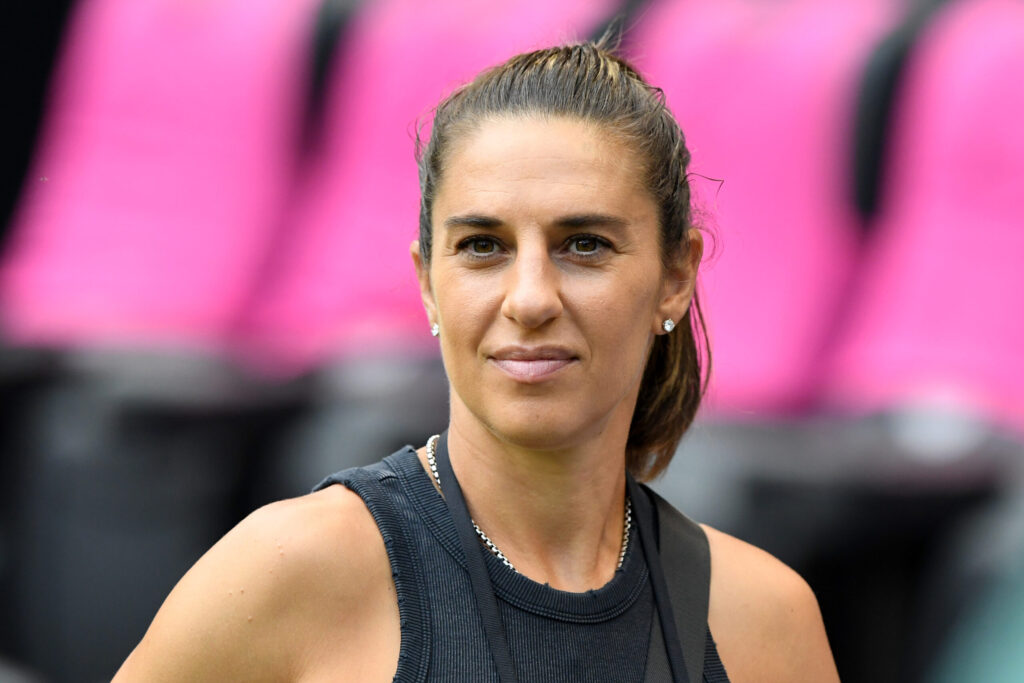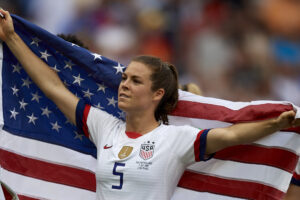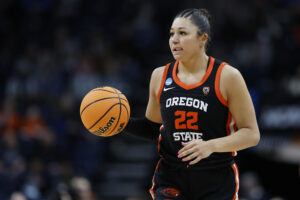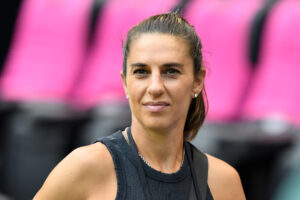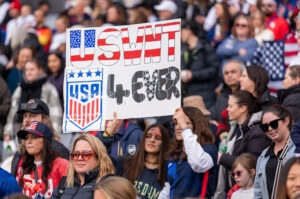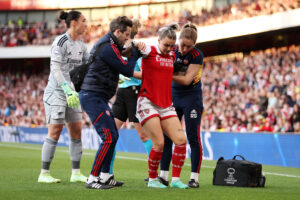Haylie McCleney has been a member of Team USA since 2013. She was a four-time All-American at Alabama, where she ended her career as the program’s all-time leader in batting average (.447), on base percentage (.569), walks (199), and triples (16).
Team USA qualified for the Olympics by reaching the gold medal game of the WBSC Women’s Softball World Championship in 2018. What was it like to try and play for a championship after hearing the news?
We only knew about an hour before warmups that we had qualified due to Japan beating Canada. It was crazy. Individually, we were dealing with all kinds of emotions, like, Oh my God, each of us now has a real shot at playing in the Olympics because we’re on this roster already. The only spot that had been secured was for Team USA as a whole, but each of us has to try out every year to earn a place on the team. So naturally when the team qualified, everyone is thinking about what they have to do to keep their spot. But then we had to immediately lock in and say, let’s go win a gold medal. We ended up doing it. We walked off in Japan, against Japan, in extra innings, which is pretty insane.
Do you remember what was going through your head when you found out you’d made the Olympic roster?
I just realized how worth it the journey had been. I started playing for Team USA when I was a sophomore in college, and honestly, I just saw it then as more of an opportunity to play some extra games. At the time, college softball was everything. It was all anyone watched, and no one was really concerned with the national team because softball wasn’t in the Olympics. And then in 2016, which was my senior year in college, it was voted back into the Olympics. Suddenly people started paying attention. The team started to evolve. And having the opportunity, personally, to evolve with the team has been really special. To go from playing for nothing other than the opportunity to wear USA across your chest, to now having the opportunity to compete for a medal, to potentially end up on a podium with a gold medal around your neck, listening to the national anthem… It’s amazing. And it was only when the final roster was announced that I felt the full shock of like, I’m actually going to the Olympics.
What are you most looking forward to at the Olympics?
You know, most Olympic athletes know well ahead of time that their sport is going to be in the games, so they know they have a shot at competing. We had no idea until 2016. And we still don’t really know what our careers look like after 2020, because it’s not guaranteed that softball will still be in the subsequent summer games. Not a lot of teams have had the journey we’ve had, so we’re just doing everything possible to make this year count, because we don’t know if this opportunity is ever going to come again.
What does your current training schedule look like at the moment?
We’re traveling all across the country on our Olympic tour, playing in different cities against colleges and other teams. Honestly, my life has been a whirlwind since October, and it’s going to continue to be that way until late July when we head to Tokyo. And I’m totally okay with that. I’m living my best life right now. I’m playing softball for a living, I don’t have to have another job, which is unlike anything I’ve experienced in the past. I’ve always either had school or had another full time job. This is the first time in my life where I actually feel like a professional athlete, which is super cool.
What’s the team dynamic been like given the range of ages?
I think the age difference between the oldest and the youngest is honestly really beneficial for us. We have so many different perspectives, which are great to have, especially in high pressure games. We’re playing NCAA teams on this tour, and there’s pressure to do really well as the Olympic team. There’s 78 games, and we’re supposed to win all of them. That’s a lot of stress to carry with you day after day, which is why I think having the perspective of older players, like Cat [Osterman] and Monica [Abbott], comes into play. They’ve been through this before and they know when we need to step back and remember that this is about the process and the big picture.
At the same time, sometimes you have a tense situation where, instead of panicking, everyone just needs to play free and loose like little kids again. And that’s where the younger players’ perspectives, like Rachel Garcia and Bubba Nickles, come in — they’re always smiling and just happy to be there. Honestly, they probably had no clue a few years ago that they would be on the Olympic roster, so they’re full of gratitude and just genuinely happy. That helps our dynamic a lot.
How would you describe the international competition?
The closest thing I would compare it to is like the Women’s College World Series on steroids. These women are on a whole different level. I mean, they’re in their late twenties, early thirties, in the peak of their athletic prime. And the way they approach the game mentally is just on a completely different level than what you see in college. We only have six teams in our Olympic bracket, so we don’t have to worry about preparing for every single country. But these six teams have really good athletes, so we aren’t taking the competition lightly. Australia is historically a very good international program. Italy has really good pitching and they’re really scrappy at the plate. Canada is always a team that we compete with. Japan is very disciplined and they’re going to be playing in their home country. It’s going to be a battle, but we’re going to be ready for it, and I like our odds.
Transitioning to your life off the field, I know your fiance also plays softball. What’s it like being able to share that with her?
I wouldn’t have met Kylee if it wasn’t for softball. We played on the same travel ball team when we met. I was 17. And we talked to each other for about a year and got really close, and then we started dating my freshman year of college. So we’ve been together for a little over six years now. And we are planning on getting married after the Olympics. But it’s not just my relationship with Kylee that I have to thank softball for. Almost all of the relationships I have in my life center either around the game of softball or sports in general. The coolest part about softball is not only all the cool places I have been able to travel to, but also all the cool people I’ve been able to meet. What is crazy about it is that at the root of the game, it’s a sport of failure. If I’m batting .400, that means I’m failing six out of ten times. But you can still be an All-American with that number.
Last question: is there a particular moment in your life where you were able to get over a hump because of the lessons you’ve learned as an athlete?
The biggest lesson I’ve learned from playing this game for so long is to just keep moving forward. Two years ago, I was hired for my first full time job at Florida A&M as a strength and conditioning coach, and I was immediately thrown into the fire. I was in charge of running all the strength and conditioning programs for eight teams at FAMU with only four weight racks. But even though I was in way over my head, I was able to react to the pressure and chaos because of what I’d learned playing softball. I wouldn’t have nearly as much perseverance, grit, or selflessness if it wasn’t for the sport. Every day at FAMU, I woke up at four am to get to work at six, and then woke up the next day to do it all over again. And I did that for almost two years. Now, when I look back, I know that it was the best situation I could have been in after graduating, because it helped me grow as a coach and a person. It was another reminder that I’m not sure who I would be without the sport of softball. It means everything to me, and I want to play as long as I can and as long as my body will let me. I can’t let it go.
